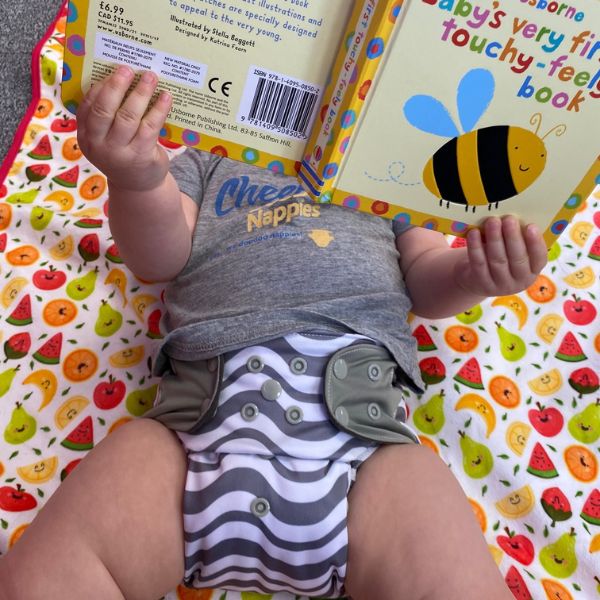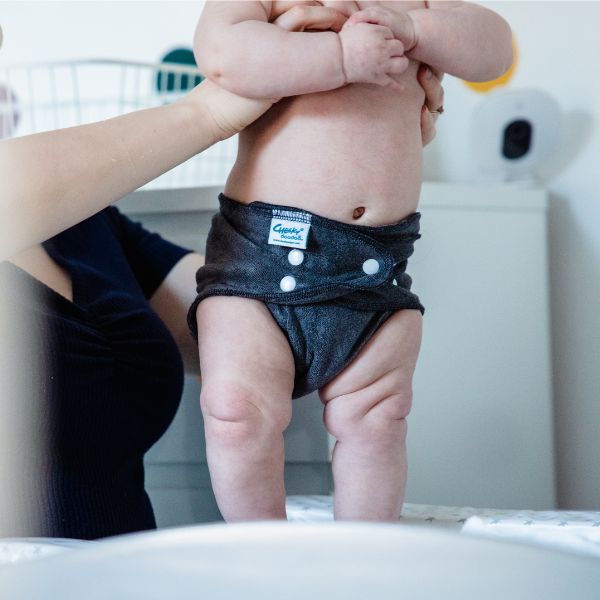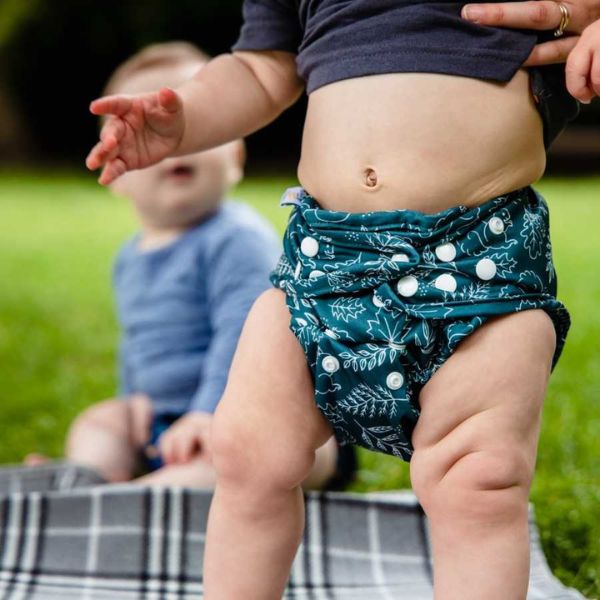Sanitising Cloth Nappies24 April 2023 Many new parents are making eco friendly swaps to lower their carbon footprint and have less impact on the environment around them. Cloth nappies are growing in popularity as they are readily available, better for baby, save money in the long term and reduce waste. Reusable nappies help parents reduce the environmental impact of disposables. Not only are they comfier for baby, they come in cute fabrics and patterns and can be used from your precious first born through all siblings and still be sold on when your youngest potty trains. SO ECONOMICAL! 
Cloth diapers may need extra deep cleaning, even with a good washing routine. This is to eliminate ammonia, microbes, odours, and stains. It can also be used to treat fungal or bacterial infections. Strip washing reusable nappies is designed as a reset and won't be needed very often if your daily routine is good. We will look at the reasons why you may need to give your cloth nappies an intensive wash and discuss different methods to do so effectively. Reasons to Sanitise your Cloth NappiesEven with proper washing cycles and care, there are several reasons why reusable nappies may require laundry sanitising or strip washing: - If you have bought preloved nappies: When using second hand cloth nappies, it's important to sanitise them to ensure they are clean and hygienic for your baby. Deep cleaning washable nappies will help remove any germs or bacteria that may have been present from previous use.
- Lingering smells and stains: Cloth nappies can sometimes develop persistent smells or stains, even after regular washing or if your routine slips. Sanitisation can help eliminate these leaving your cloth nappies fresh and clean.
- Ammonia build up: Overfilling your machine or under dosing with detergent can lead to ammonia build up. You will know by the smell when your baby wets or has dirty nappies, and it can cause nappy rash.
- Fungal or bacterial infections: If your baby has had an infection, such as thrush your nappies will need to be sanitised to prevent recontamination. Sanitisation methods can effectively kill the germs and ensure that the nappies are safe to use again.
- Detergent build up: This can happen due to strong detergents and modern washing machines using less water.
- There may be other reasons to sanitise cloth nappies. For example, if they have been stored for a long time after an older sibling. Or, if you want to give them a deep clean to maintain their overall hygiene.

"Love these nappies!! They fit our little one really well straight from week 1. He was 7lbs 13oz when he was born. There's plenty room in them with all the different poppers for him to grow too, there's been no nappy leaks and they're so soft on his little bottom! Absolutely love them and would recommend to anyone!" Bryony trustpilot Jan '23 How to Sanitise Cloth NappiesThere are several methods of cleaning nappies nappies, depending on the type of issue you are having. You may find lots of differing opinions on how to strip wash online - including using bleach, washing up liquid, even dishwasher tablets. Here's how to sanitise cloth nappies: Hot washingHot washing cloth nappies is one of the most effective methods to sanitise cloth nappies. - Place the cloth nappies in the washing machine
- Pre wash as usual
- Set the washing machine to a LOOOOOOOONG hot water wash 60-90 degrees - 60 max for any items with PUL, at least 2.5 to 3hrs with a full dose of laundry detergent
- Tumble dry any parts without PUL and hang wraps to air dry or follow the manufacturer's care instructions for drying.

SunningSunning is a natural way to sanitise cloth nappies and also helps to remove stains. - Wash the cloth diapers as you normally would.
- Line dry the wet nappies outside in direct sunlight, making sure they are fully exposed to the sun.
- Leave the nappies in the sun for several hours, rotating them to ensure all sides are exposed to sunlight.
- The UV rays from the sun will help kill germs and bacteria, naturally sanitising the nappies.
- Once the nappies are dry, bring them inside and give them a shake to fluff the fibres back up.
Using a Sanitising SolutionYou can add extras to your wash to help with smells and stains - - Stain remover like vanish can be added to your nappy wash in powder form or rub the soap bar on stains before washing
- Nappy cleansers like napisan for a soak in your nappy bucket or in the wash
- Antibacterial laundry liquid into your fabric softener drawer in your normal nappy wash to help keep on top of smells and stains
- White vinegar for a natural solution, either spray directly onto stains and it can help break down detergent if added during the rinse cycle of your machine
- Soda crystals are another natural additive that can shift stains and can be used as a pre-soak
Follow the manufacturer's instructions to avoid invalidating your warranty. "Love Love Love these reusable nappies and nappy covers - the absorbency is so good and the cover holds everything in. Best of all great value for money. We haven’t had any leaks and the poppers are baby proof so no more sneaky nappy removals by little one!" LSK Sep '22 trustpilot If you found this blog helpful you may like to read our blogs - The beginners guide to reusable nappies The beginners guide to reusable cloth wipes Our guide to going toilet paper free As always, if you're unsure of what you need to make the switch, please do drop the team a line or use the online chat function. The team all use the products themselves and just LOVE to chat pee poo and periods, all day long, nothing is TMI and we all love to overshare based on our own experiences... About the Author: Kirstin Scriven is part of the Customer Experience team at Cheeky Wipes, which since 2008 has been selling the original reusable wipes kit. She is mum to three kids and loves the forest, the sea and the hills! Along with the rest of our crack team, she spends most days talking about poo, pee and periods and loves a chance to overshare. Cheeky wipes were recognised with a Queens Award for Enterprise in Sustainable Development in 2021, celebrating their hard work over the last 13 years. |